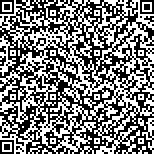Archive > Volume 44 Issue 6 > 2018,44(6):837-843. DOI:10.7519/j.issn.1000-0526.2018.06.011 Prev Next
Relationship Between Stroke and Meteorological Factors and Its Prediction in Urban Areas
- Article
- Figures
- Metrics
- Preview PDF
- Reference
- Related
- Cited by
- Materials
Abstract:
The purpose of this paper is to help medical institutions in terms of a reasonable allocation of medical hands, beds and medical drugs, and also to help people in high stroke risk by mean of timely intervention, reducing the risk of stroke occurrence. The data of the cases of stroke in four hospitals from 2013 to 2016 were analyzed, and the number of daily patients in the hospital was divided into six grades. By taking the support vector machine (SVM) and the random forest (RF) methods, and using the corresponding local daily meteorological data collected, we established the prediction model for daily patients and the correlation model related to meteorological factors. The results showed that: (1) the number of daily patients with stroke was not balanced and the accuracy of traditional prediction model was relatively low. (2) By constantly adjusting the initial weight of the SVM prediction model, we found that, after 4 attempts of optimization, the prediction accuracy of the number of daily patients increased from 52.46% to 94.56%. (3) The results of the random forest model showed that the three meteorological factors affecting the incidence of stroke are the maximum temperature, the minimum temperature and the mean temperature. Thus, the research results of the correlation between stroke diseases and meteorological factors based on machine learning model could improve the prediction accuracy of medical meteorological statistical models, and have good application and promotion values.
Keywords:
Project Supported:
Clc Number:


Mobile website









